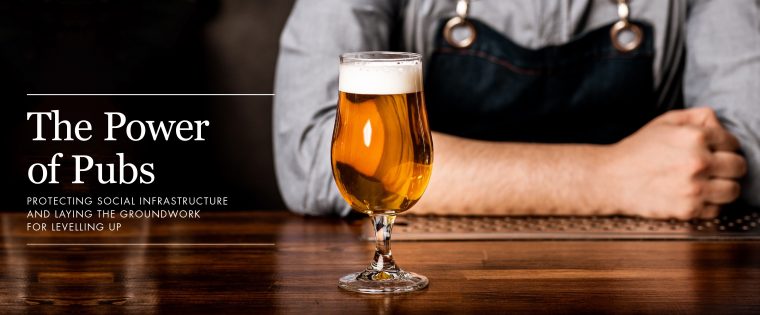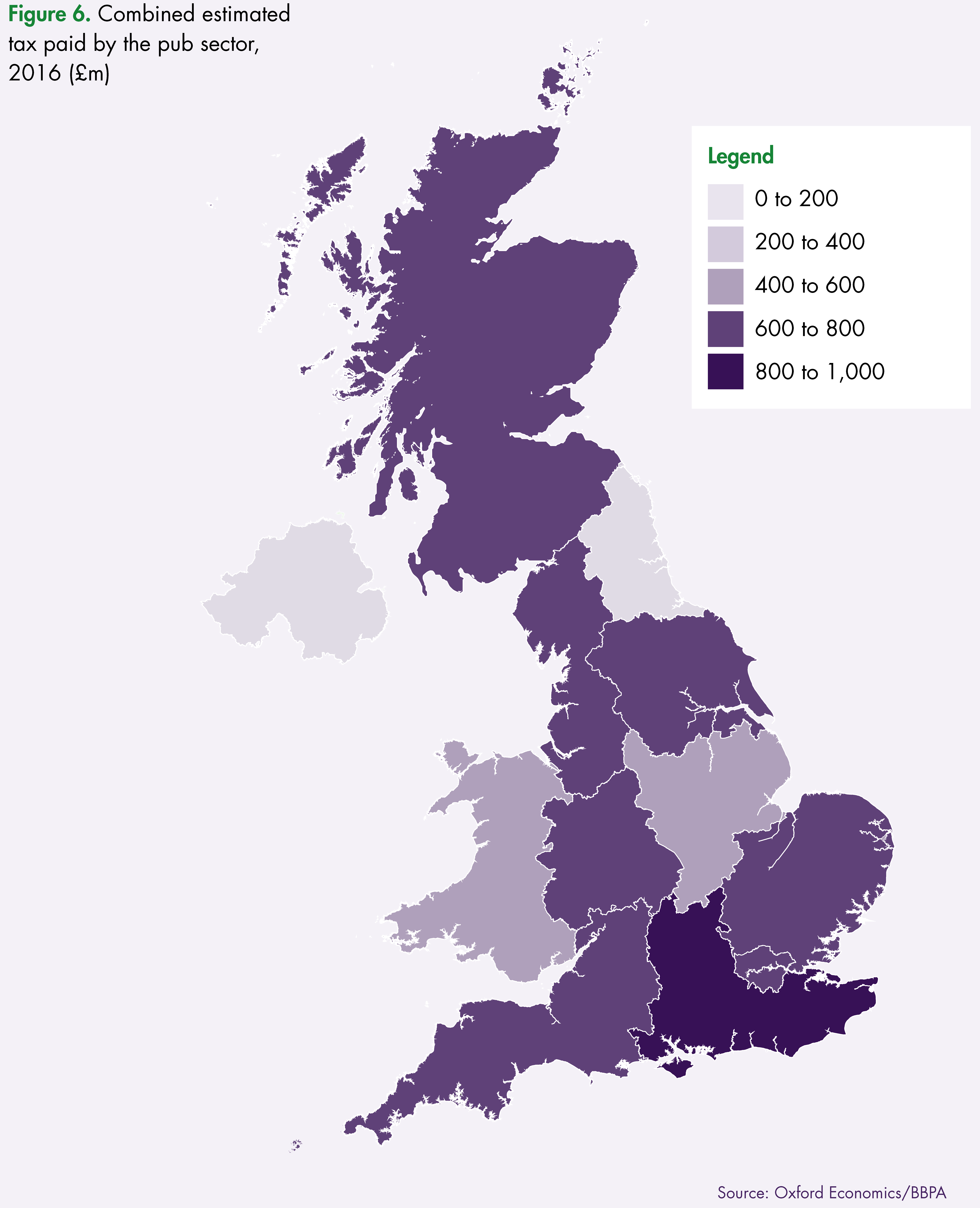The Power of Pubs
Protecting social infrastructure and laying the groundwork for levelling up
Author: Zayn Qureshi & Joe Fyans |

Writing in 1912, Hilaire Belloc warned: “change your hearts or you will lose your inns and you will deserve to have lost them”. Should such a calamity unfold, Belloc added that “you will have lost the last of England”. The Power of Pubs looks at the attempts made in 2020 by the UK government to avert this tragic scenario and the requirements for 2021 and beyond to shore up a national institution and place pubs at the centre of ‘levelling up’ the nation.
As one of the biggest contributors to the UK economy, the sector has a vital role to play in the recovery and levelling up journey of the country as well as in maintaining community cohesion and social resilience well beyond the pandemic. Pubs support 884,860 jobs across the UK, £12.1bn of wages, and £23.4bn of GVA across the country. They are a key part of the foundational economy in our cities and towns. Aside from the economic impact of the lockdown on pubs, their closure has had a wider impact on community cohesion up and down the country. Pubs form a vital part of social infrastructure in place and are anchors that tie the community together. This is particularly true for rural towns and villages.
The report indicates the need for policy recommendations for the short, medium and longer term. In the short-term, it is vital that the roadmap to reopening is not allowed to slip back further for pubs and that the commitment to end all trading restrictions by June 21st must be delivered to return pubs to viable trading. Following reopening, some extra, medium-term measures may be needed to help place the pub sector at the foundations of a strong recovery, support local economies and shore up community resilience. For example, extra support may be required in some parts of the country to keep the sector afloat and in place, ensuring that the pub sector can be central to the levelling up mission and the restoration of high streets. Looking ahead to the longer-term, as we move into the recovery phase, central government should support the pub sector through reducing the tax burden on the sector to aid this recovery and build resilience.
Download the executive summary
Download the recommendations
Key points

Pubs and the pandemic
The COVID-19 pandemic triggered an unprecedented hit to all sectors of the economy. For hospitality however, and for ‘wet-led’ pubs in particular, inconsistent messaging and decisionmaking devastated the sector far beyond what was necessary in response to a national emergency. Efforts to get people in and to keep people out of pubs were made alternatingly and with little warning to the sector of changes to come. The potential dangers of pubs as opposed to non-essential retail were emphasised greatly but often based on very limited evidence and always besot by the overarching problem that poor data and an inability to effectively track and trace individuals mades it near impossible to assert with full confidence which setting posed the biggest risk to transmission or which measures would most effectively limit the spread of COVID-19. This led to situations like that in late 2020 where a fast-shifting sytem of tiered restrictions caused many publicans to waste precious financial resources on adapting to an announced local tier which would never come into place. In sum, the ad hoc nature of announcements and rumours of announcements regarding restrictions placed on their opening and closing compounded the effects of the pandemic’s economic hit to the pubs sector. For a sector that is one of the largest contributors to the national economy, as well as being a vital social anchor for communities, this position is untenable.
Pubs and the state
Pubs are a key part of the ‘foundational economy’ – the base on which growth and innovation are built. Around one in twenty people in England, Scotland and Wales are employed in food and beverage service activities at any given time. Current levels of support are inadequate to protect local economies from the shock of a sudden downturn in the pub sector. Moving forward, future government support for the sector needs to be further reaching and more nuanced to local need. It is urgent that it reflects the true economic cost of continued restrictions and local need in facing associated challenges. Furthermore, there is a role for the sector in the local recovery action taking place as part of the levelling up agenda. The pub and wider hospitality sector will be crucial in the medium and long term not only for our economic recovery but also the social resilience of communities across the UK. Given this, they should play a central role in any local recovery plan.
Pubs and society
Social infrastructure is the locus of the small-scale connections that are created from people who share a common interest that builds up civic life. Therefore, pubs as physical assets often act as centres of community life and assume the role of being social anchors that bind people together. Pubs and other civic spaces are part of the scaffolding that helps create a strong community identity. They are vital third spaces that need to be protected and grown. The role that they play as key social infrastructure in place that contribute to the fabric of civic life demonstrates their importance as community anchors.
Project kindly supported by

